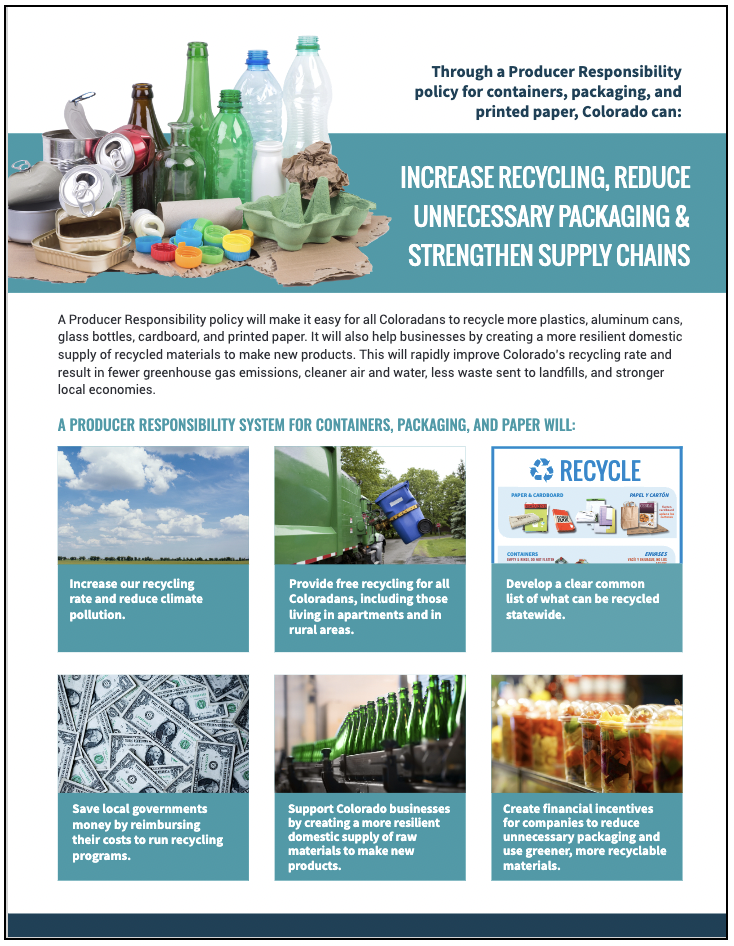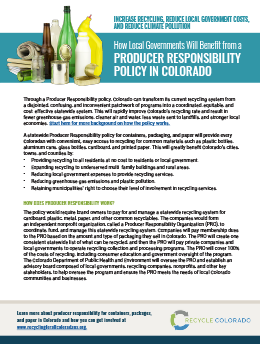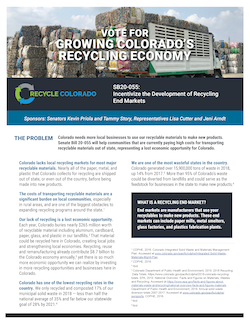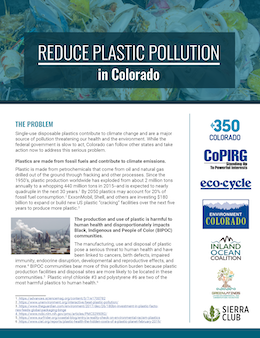Creating Systemic Change Through Statewide Policy
Colorado recycles and composts only 16% of its waste—just half the national average of 32%. To significantly increase Colorado’s waste diversion, we need to change the system. We need to make recycling, composting, and other Zero Waste solutions more accessible and convenient to everyone in the state, regardless of which town they live in. The best way to achieve this is by adopting state policies that improve Zero Waste infrastructure, services, and programs, and help develop recycling end markets.
Campaigns in 2025
Battery Stewardship Programs (Senate Bill 25-163)
Senate Bill 25-163 would require producers to manage the end-of-life of their products and create statewide battery recycling access for all Coloradans. Currently, many Coloradans lack access to proper battery collection. Without proper recycling options, many consumers improperly dispose of batteries in trash cans, recycling bins, or in the environment, leading to dangerous fires and soil and water pollution.
This bill is a crucial step to set up equitable collection systems across the state for small- and medium-format consumer-facing batteries, increasing the amount of valuable minerals that are recycled into new products and reducing the risk of battery-caused fires from improperly disposed batteries.
Landfill Methane Monitoring Rulemaking
Landfills are a major source of methane, a potent greenhouse gas released when organic discards like food scraps and yard debris breaks down in a landfill without oxygen. This invisible pollutant accelerates global warming.
Reducing landfill methane emissions is one of the fastest, most effective ways to slow climate change. The Colorado Department of Public Health and Environment (CDPHE) is already moving forward with rulemaking to tackle this issue, and Eco-Cycle, along with our allies, is launching a statewide campaign to push for the strongest possible methane control measures. Together, we can set a powerful national precedent.



























